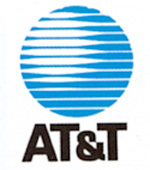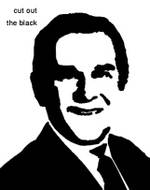This is the first week where my weekly A-Clue essay comes via the blog rather than in newsletter form. You can call this the January 1, 2007 issue, Vol. XI, No. 1. Enjoy
The AT&T acquisition of BellSouth, not the execution of Saddam Hussein, should be the real end of an era.
Ever since the Bush Administration took power, in 2001, we have seen continuing consolidation in the Internet access space. Users have fewer choices, and so too site managers. We pay more for less bandwidth than any other industrialized nation, which means that soon, we may not be one.
There is no sound reason for this. The cost of providing Internet connectivity has actually gone down continuously over this period. We’ve gone from 802.11b WiFi, at 10 MBPS, to 802.11n, at 100 Mbps. DWDM means a fiber placed into the ground today has many times the data capacity of fiber put in service six years ago. Internet access has never been easier to install. And the Internet can now handle all the connection services we need. Video, telephone, money, thoughts — any good that can be reduced to bits can now be processed cheaply.
The only costs of telephony today are bureaucratic.
Yet throughout this decade, as the Bells have spent billions gobbling one another up, America’s competitive position has fallen. At last count we were down to 19th in terms of our access to Internet resources, and we’re continuing to fall fast.
The blame cannot fall entirely on AT&T. Government policies have
allowed this to happen. In fact they have encouraged it, in the name of
creating a surveillance state. Let me state it plainly. George W. Bush
wants the U.S. to become the new U.S.S.R., and his minions have bent
every ounce of their energy to the effort.
This is a greater charge than perhaps I should be leveling. You may
think that to call Bush Orwellian I’m biting off more than you can
chew. So be it. But we need to be clear here about means and ends.
Monopoly, and control of your data, are not the end game. AT&T is a means. Absolute control of society is the end.
What we are witnessing, in fact, is the climax of a generation-long
fantasy, one which has its roots in the the historic battles against
Communism and Fascism, and one which is built on a lie. That lie is that our
enemies’ systems were, somehow, stronger than freedom could ever be,
that the unity achieved during World War II could only be sustained by
stamping out dissent, when in fact it was our our liberty that was our
strength all along.
While the Berlin Wall was coming down our leaders ignored the most
important image of that time. It was the Western side of that wall,
filled with graffiti, individual messages in a myriad of colors, that
was our strength. The Eastern side, with its enforced conformity, its
uniform blank slate, its basic inhumanity, that was the failure.
Instead Americans bought the Big Lie, the lie somehow Reaganism and our
military might had forced the Soviets to submit to our will. And when a
small united band of fanatics exploited a fundamental design flaw in
the Twin Towers, we went back to that Lie. We demanded submission to
the Lie in the name of unity. Absolute obedience, absolute
surveillance, and absolute control were the goals, even before the
attacks of 9/11.
The Twin Towers became the Reichstag Fire of the new
Machine Men.
The broadband monopoly, then, is merely a symbol for a larger
failure. When we bought the Nixon Thesis of Conflict, in 1968, we
bought a set of Myths and Values under which conservatives became
Conservatism and Conservatism could never be wrong. Listen closely to
the critiques, even now, from the Right following the 2006 election.
Bush wasn’t a real conservative. Bush wasn’t conservative enough. Bush
betrayed the conservative cause. Bullshit. Any program of
absolutism, any cause that becomes an -ism, betrays itself. It’s in
diversity, argument, and messy differences where our strength lies.
Anyone who demands conformity betrays humanity.
Here’s where it all knits together. My writing on technology and my
study of history all come down to this inescapable fact. A new Thesis
is needed, a new political Myth that can replace the Nixon Thesis of
Conflict, and take us to where we need to get, as a nation, as an
economy, and as human beings.
That’s the Internet Thesis. It has been building on this medium
since it entered the mass market 13 years ago. The Values of this
medium — openness, connectivity, consensus — these are the Values we need
to build around. These are the Values which must replace the present
Red-Blue divide with something far more complex, but also stronger.
It’s not enough to scare up 51% support for a policy. Power is not a
zero sum game. We start with areas of agreement and build on them,
together. The greatest freedom for the greatest number should be our
goal — freedom to compete, freedom to invent, freedom to connect,
freedom to think, freedom to argue, freedom to disagree. Freedom to
tell Blankenhorn he’s full of shit, and freedom for Blankenhorn to say
the same back at ‘ya.
No one can know it all. Gather all the data on all the Web to you
and you still won’t have the answer. It’s the messy experimentation of a
truly free market — in finance, in ideas, in faiths, in ideals — that
creates strength.
Internet-friendly policies are those which create the most
competition in every area — in access, in the backbone, in devices, in
software, in thought. We can tolerate the idea of racism, or of
religious absolutism, while remaining intolerant of individual racists,
fascists, and religious fanatics. It is our individual and collective
choices that must be trusted, and all limits on those choices that must
be distrusted.
The only forbidden word should be no. The only imperative should be try.















i like reading your ideas in this blog. But one thing doesn’t seem to be true.
“The only costs of telephony today are bureaucratic.” Can you support this with facts? AT&T has network technicians in 22 states that ‘drive the trucks’ and climb the poles. When Katrina hit an small army was sent out to repair the lines that carry the internet and voice service. i’ll check and see how much is bureaucracy (sp?) versus blue collar. But my guess is half and half as far as employees go. And when the union contract comes to be re-negotiated this year (2009), the two sides will be hashing it out. I’m interested in seeing how it goes, and would love to hear your take on it.
i like reading your ideas in this blog. But one thing doesn’t seem to be true.
“The only costs of telephony today are bureaucratic.” Can you support this with facts? AT&T has network technicians in 22 states that ‘drive the trucks’ and climb the poles. When Katrina hit an small army was sent out to repair the lines that carry the internet and voice service. i’ll check and see how much is bureaucracy (sp?) versus blue collar. But my guess is half and half as far as employees go. And when the union contract comes to be re-negotiated this year (2009), the two sides will be hashing it out. I’m interested in seeing how it goes, and would love to hear your take on it.
Money is like muck , not good except it be spread .
Money is like muck , not good except it be spread .
Money is like muck , not good except it be spread .
Money is like muck , not good except it be spread .